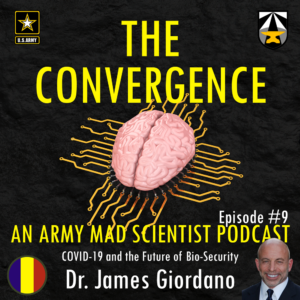[Editor’s Note: Mad Scientist Laboratory is pleased to announce the latest episode of “The Convergence” podcast, featuring frequent guest blogger and proclaimed Mad Scientist Dr. James Giordano, Professor in the Departments of Neurology and Biochemistry; Chief of the Neuroethics Studies Program, Co-director of the Program in Science and Global Health Law and Policy, and Chair of the Sub-program in Military Medical Ethics of the Pellegrino Center for Clinical Bioethics at Georgetown University Medical Center. Please note that this podcast and several of the embedded links below are best accessed via a non-DoD network due to network priorities for teleworking — Enjoy!]
To listen to the podcast, click here.
 In this latest episode of “The Convergence,” we talk with Dr. James Giordano from the Georgetown University Medical Center. Dr. Giordano is the author of over 300 papers, 7 books, 21 book chapters, 20 government white papers, and 8 Mad Scientist Laboratory blog posts addressing brain science, national defense, and ethics.
In this latest episode of “The Convergence,” we talk with Dr. James Giordano from the Georgetown University Medical Center. Dr. Giordano is the author of over 300 papers, 7 books, 21 book chapters, 20 government white papers, and 8 Mad Scientist Laboratory blog posts addressing brain science, national defense, and ethics.
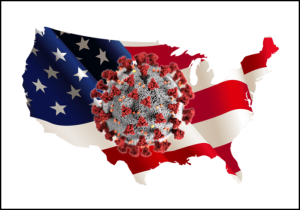 In this episode, we break down the COVID-19 virus, the effect this pandemic has had on the Nation, its impact on national security, and the potential implications on future bio-security.
In this episode, we break down the COVID-19 virus, the effect this pandemic has had on the Nation, its impact on national security, and the potential implications on future bio-security.
Highlights from the conversation include:
-
-
- This is an interesting virus in its evolution. It adapted from a mammalian species, a bat, to an intermediate species, to a human, as many viruses will tend to do. I think what’s important to make available and understandable to the listening audience is that there is the likelihood that this will continue to occur, and occur with some increasing frequency.
-
-
-
- On Ecological Intrusion – Humans are spreading into a variety of different niches that heretofore were primarily simply occupied by animal species and the extent of human-animal interaction is increasing.
 Environmental factors such as global warming and climate change may also precipitate the shift from animal interactions with humans to more direct interactions and may also cultivate the generation and perhaps evolution of a variety of different microbial species.
Environmental factors such as global warming and climate change may also precipitate the shift from animal interactions with humans to more direct interactions and may also cultivate the generation and perhaps evolution of a variety of different microbial species.
- On Ecological Intrusion – Humans are spreading into a variety of different niches that heretofore were primarily simply occupied by animal species and the extent of human-animal interaction is increasing.
-
-
-
- On state and non-state actors using bio-weapons in the future… One of the things that keeps coming up over and again, irrespective of whether there’s a neurological function or there’s a non-neurological target, is the increasing ease at which organisms might be modifiable through the use of currently available and developing gene-editing techniques.
-
-
-
- If I were an actor, or if I were working for a nation state, and I really didn’t care what I created, as long as I created something that might be disruptive, well then — what happens there is you’re stacking the deck.
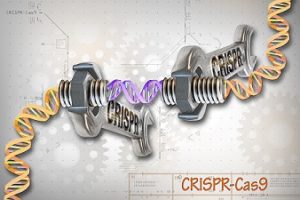 So what we’re trying to use CRISPR for, and these other gene editing tools and techniques, is the directed or intentional modification of organisms; that we understand what they’re going to be, what they’re going to do, and we’re trying to modify them in selective ways, towards particular trajectories of structure and function.
So what we’re trying to use CRISPR for, and these other gene editing tools and techniques, is the directed or intentional modification of organisms; that we understand what they’re going to be, what they’re going to do, and we’re trying to modify them in selective ways, towards particular trajectories of structure and function.
- If I were an actor, or if I were working for a nation state, and I really didn’t care what I created, as long as I created something that might be disruptive, well then — what happens there is you’re stacking the deck.
-
-
-
- But if what I’m really trying to do is just create an organism that would be more infectious, transmissible, pathogenic… I really wouldn’t care what it is I created, only that I created something that had the necessary characteristics that I was then looking to implement.
-
-
-
- One of the things that we’re suggesting and the drum that we’re proverbially beating is that these types of gene editing techniques, not only taken alone, but in concert with other viable techniques and tools of
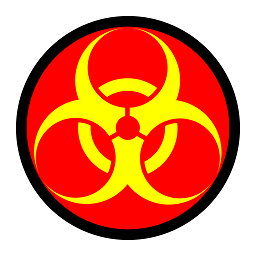 the bio and life sciences are something of a game changer when it comes to the viability or possibility of developing novel or new biological organisms that may have pathological features that could be leveraged as agents of disruption and/or destruction. In other words, weaponizing those things.
the bio and life sciences are something of a game changer when it comes to the viability or possibility of developing novel or new biological organisms that may have pathological features that could be leveraged as agents of disruption and/or destruction. In other words, weaponizing those things.
- One of the things that we’re suggesting and the drum that we’re proverbially beating is that these types of gene editing techniques, not only taken alone, but in concert with other viable techniques and tools of
-
-
-
- We’re not really existing in a uniform environment of ethical universality. Different cultures have different histories, different philosophies, different needs, different values, and as a consequence, different ethics. Ethics is always about the effort or about the enterprise or about the environment in which it’s going to be used.
-
-
-
- For years there has been very explicit talk of bio-security gaps and or inadequacies at a number of levels within the various chains of structure and function across the levels of government and that this
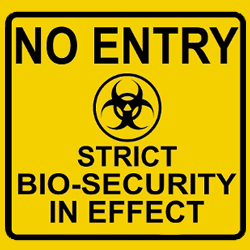 represented, if not an Achilles heel, certainly a point of entry for vulnerability to other Achilles heels. For example, the national economy, military readiness, public health care and health care provision and its administration. Those may be the true Achilles heel, but certainly you need to sort of vector your way in to get past Achilles’ sandal to get to the heel, so to speak.
represented, if not an Achilles heel, certainly a point of entry for vulnerability to other Achilles heels. For example, the national economy, military readiness, public health care and health care provision and its administration. Those may be the true Achilles heel, but certainly you need to sort of vector your way in to get past Achilles’ sandal to get to the heel, so to speak.
- For years there has been very explicit talk of bio-security gaps and or inadequacies at a number of levels within the various chains of structure and function across the levels of government and that this
-
-
-
- And so what we’re very concerned about is both what do we have in place at present and in the near future with regard to bio-security infrastructures and functions and are those things adequate and/or sufficient to be able to “get the job done” in light of not only the potential for natural burdens risks and threats, but those that may be man-made, man-created, man-intended, and/or man-developed and released.
-
-
-
- Gaps in the “armor,” if you will, are becoming ever more evident. And the world is certainly watching. The question is will these then be
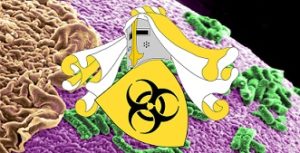 calls to action to then be shored up in the future and will we, in fact, engage the necessary processes of a gap identification, gap analyses, and then ultimately gap closure, compensation, and then fortification in the future? Or will we sort of just exhale after this is all over, recognize this may entail some kind of a new normal, and go back to “business as usual?” Which would be, I think, disastrous.
calls to action to then be shored up in the future and will we, in fact, engage the necessary processes of a gap identification, gap analyses, and then ultimately gap closure, compensation, and then fortification in the future? Or will we sort of just exhale after this is all over, recognize this may entail some kind of a new normal, and go back to “business as usual?” Which would be, I think, disastrous.
- Gaps in the “armor,” if you will, are becoming ever more evident. And the world is certainly watching. The question is will these then be
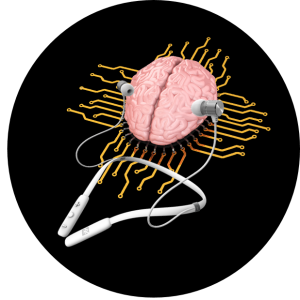
-
- Stay tuned to the Mad Scientist Laboratory, as our next podcast with proclaimed Mad Scientist Kara Cunzeman will be posted on 14 May 2020!
If you enjoyed this post and podcast, check out our Contagion: COVID-19’s impact on the Operational Environment series:
… as well as Dead Deer, and Mad Cows, and Humans (?) … Oh My! by proclaimed Mad Scientists LtCol Jennifer Snow and Dr. James Giordano, and Joseph DeFranco,…
… Navigating the COVID Crisis: A Call to Virtue and Hope for Prudence by Dr. Giordano,…
… and Beyond 1918: Bringing Pandemic Response into the Present, and Future by Dr. Giordano, et al.
Check this out: The U.S. Army’s Mad Scientist Initiative is partnering with the National Security Innovation Network (NSIN) to explore solutions to problems in the Dense Urban space. This online challenge is open to anyone and everyone, inside and outside of the DoD. Click here for more information on this virtual game, which starts on 1 May 2020. The solutions and ideas you come up with might even earn you the chance to compete at our in-person hackathon in NYC!

